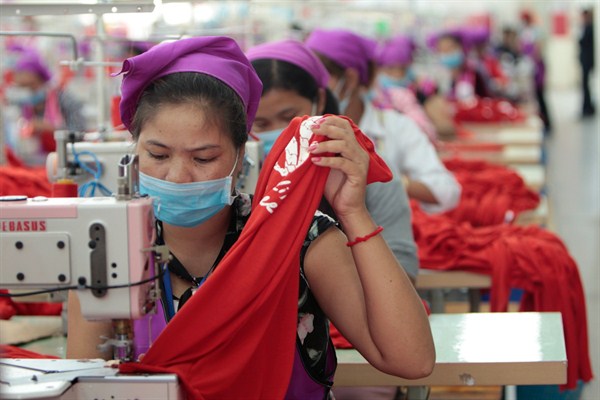What price should workers in Cambodia and Myanmar, two of the poorest countries in the world, pay because of their governments’ severe violations of human rights? The European Union is currently grappling with this question. Under its Everything But Arms trade preference program, the EU provides duty-free, quota-free market access for all imports, except weapons, from states designated by the United Nations as “least developed countries.” On paper, eligible countries are supposed to respect democracy and human rights; in practice, many do not.
In Cambodia, the government of longtime ruler Hun Sen has squelched democracy, while in Myanmar, the military has committed horrible atrocities against the Rohingya ethnic minority. Yet both countries still enjoy their duty-free market access to the EU. That might change soon.
The EU has generally been reluctant to take action against countries that enjoy the Everything But Arms trade preferences, in part because they are not a gift. Rather, they are part of a development policy that is intended to create jobs and improve livelihoods by encouraging exports. European officials rightly worry that frequent changes in eligibility would increase political risk and undermine those goals by discouraging investment in the countries affected.

